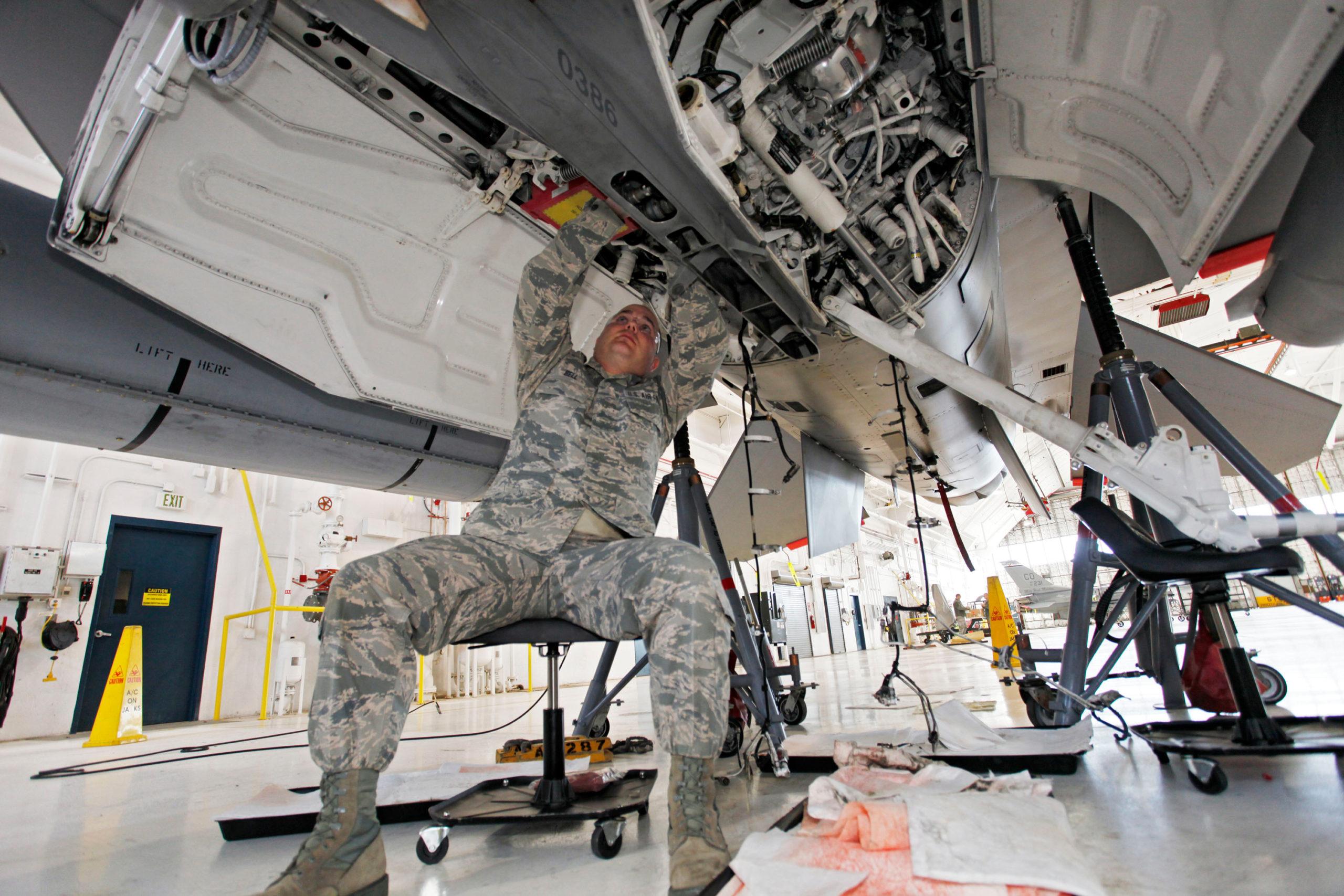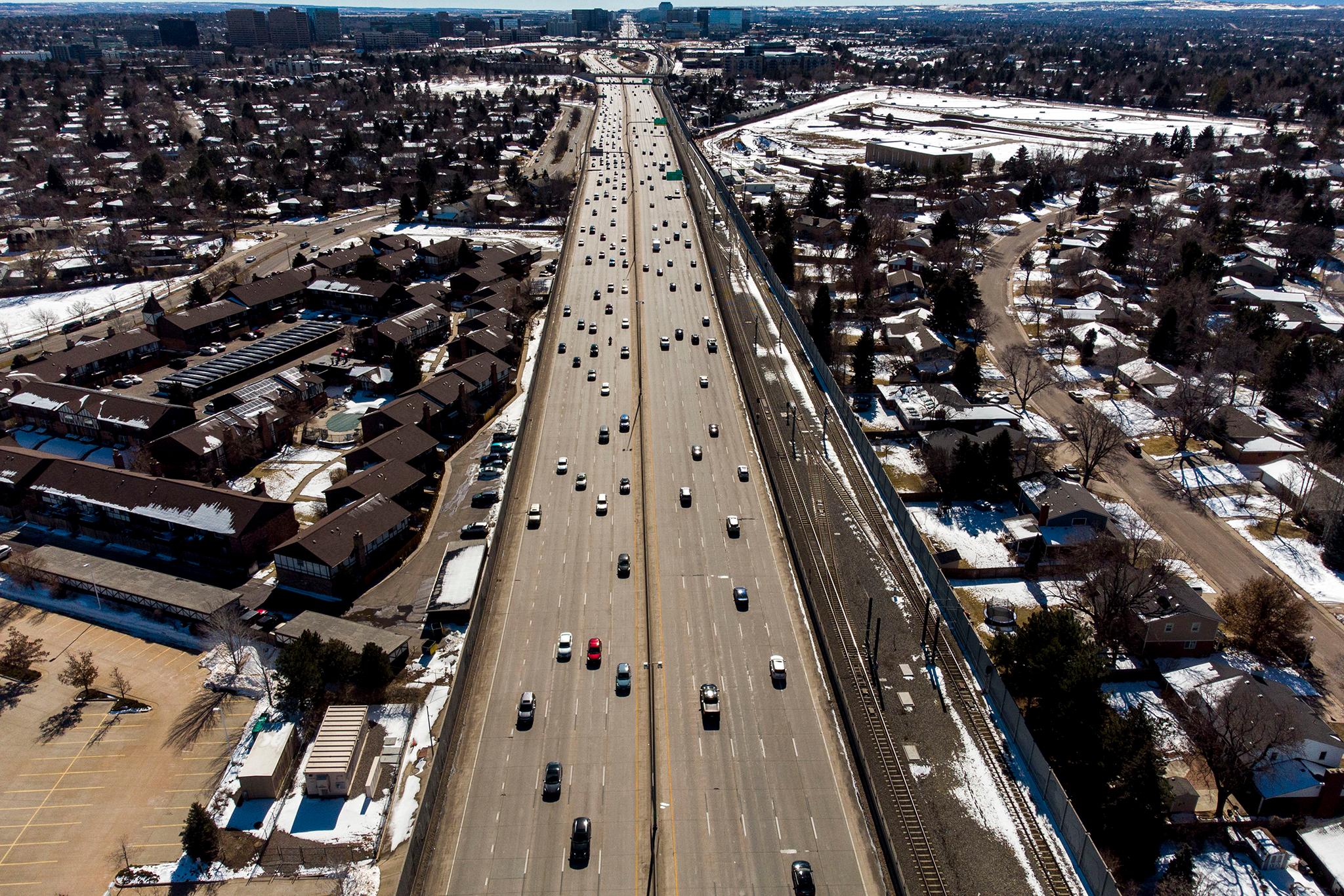
Colorado’s politicians are working to ensure Buckley Space Force Base in Aurora continues to play a crucial role in the nation's defense and keep national guard members stationed in the state.
On Tuesday, Congressman Jason Crow, Sen. John Hickenlooper, Lt. Gov. Dianne Primavera, and Aurora city manager Jason Bachelor joined base leaders for the third in a series of meetings of the Future of Buckley Task Force.
Stakeholders discussed land use issues, options for power expansion, and ensuring the base has the electricity needed to get the job done. They also presented as a unified front about a proposal from the United States Air Force that governors of 55 states and territories are opposing.
The proposed amendment to the House Armed Services Committee's National Defense Authorization Act brought to Congress by the USAF in March seeks the ability to bypass a long-standing requirement in federal law for the Pentagon to obtain a governor’s consent before transferring a National Guard unit to another branch of the military.
Specifically, the move would sidestep governors in six states, including Colorado, to transfer National Guard troops to Space Force command.
“We are working in a very unified way to oppose that proposal, which we believe is not only detrimental to our national security, but is inconsistent with the service of these men and women who signed on to serve not just their country, but their states and their communities as well,” Crow said at a press conference Tuesday.
Buckley Space Force Base is home to the Colorado Air National Guard’s 140th Wing which has roughly 1,600 members including F-16 fighter pilots and their jets. The wing’s mission dates back to wartime service since the 1950s. It helps protect the entire Western United States from threats overseas.
Buckley itself is also tasked with protecting two major Air Force commands — U.S. Northern Command, including the North American Aerospace Defense Command or NORAD, and Space Command, both headquartered in Colorado Springs.
Now, Crow says the taskforce is using the 2023 success of keeping Space Command in Colorado instead of moving it to Alabama as a model for efforts to ensure Air National Guard members stay put, protecting the valuable assets located near Denver and in Colorado Springs.
“We have some of the finest space missions based in Colorado. We want to make sure that we are protecting those missions and not allowing the Department of Defense to pull those into other states,” he said.
The state is also opposing the United States Air Force on a second effort to cut numerous fighter wings around the country. In November 2023, Crow and Colorado Republican Rep. Doug Lamborn introduced the Fighter Force Preservation and Recapitalization Act. The goal of that bill is to ensure the nation maintains a minimum number of Air National Guard squadrons. That would protect the 140th wing, sponsors say.
Crow says that bill is necessary for Buckley because the F-16s located in Colorado are some of the older variants of the aircraft in the country and could be on the chopping block with current USAF plans. Both congressmen and the Gov. Jared Polis and Primavera administration want to ensure that when those jets are retired, there is still a follow-on mission to replace them and ensure Colorado’s assets remain protected.
The task force says it will continue to meet in an effort to improve operations at Buckley and shore up Colorado as the front-lines for the nation’s security and the future of defense.
Correction, Oct. 9: This story has been updated to reflect which of Colorado's senators were at Tuesday's meeting, how many states and territories oppose the proposal, and how many governors it would bypass in the decision-making.









